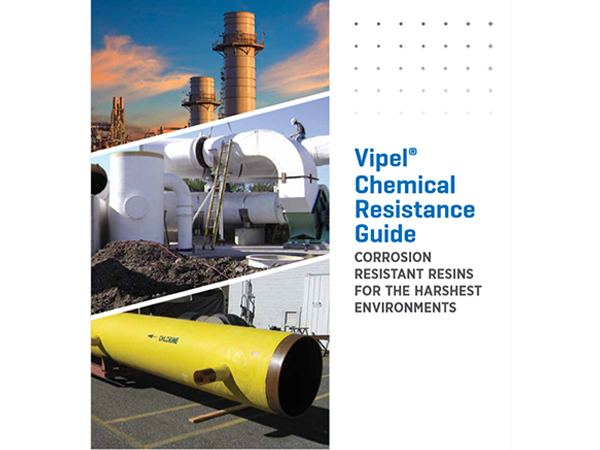
-
 Afrikaans
Afrikaans -
 Albanian
Albanian -
 Amharic
Amharic -
 Arabic
Arabic -
 Armenian
Armenian -
 Azerbaijani
Azerbaijani -
 Basque
Basque -
 Belarusian
Belarusian -
 Bengali
Bengali -
 Bosnian
Bosnian -
 Bulgarian
Bulgarian -
 Catalan
Catalan -
 Cebuano
Cebuano -
 China
China -
 China (Taiwan)
China (Taiwan) -
 Corsican
Corsican -
 Croatian
Croatian -
 Czech
Czech -
 Danish
Danish -
 Dutch
Dutch -
 English
English -
 Esperanto
Esperanto -
 Estonian
Estonian -
 Finnish
Finnish -
 French
French -
 Frisian
Frisian -
 Galician
Galician -
 Georgian
Georgian -
 German
German -
 Greek
Greek -
 Gujarati
Gujarati -
 Haitian Creole
Haitian Creole -
 hausa
hausa -
 hawaiian
hawaiian -
 Hebrew
Hebrew -
 Hindi
Hindi -
 Miao
Miao -
 Hungarian
Hungarian -
 Icelandic
Icelandic -
 igbo
igbo -
 Indonesian
Indonesian -
 irish
irish -
 Italian
Italian -
 Japanese
Japanese -
 Javanese
Javanese -
 Kannada
Kannada -
 kazakh
kazakh -
 Khmer
Khmer -
 Rwandese
Rwandese -
 Korean
Korean -
 Kurdish
Kurdish -
 Kyrgyz
Kyrgyz -
 Lao
Lao -
 Latin
Latin -
 Latvian
Latvian -
 Lithuanian
Lithuanian -
 Luxembourgish
Luxembourgish -
 Macedonian
Macedonian -
 Malgashi
Malgashi -
 Malay
Malay -
 Malayalam
Malayalam -
 Maltese
Maltese -
 Maori
Maori -
 Marathi
Marathi -
 Mongolian
Mongolian -
 Myanmar
Myanmar -
 Nepali
Nepali -
 Norwegian
Norwegian -
 Norwegian
Norwegian -
 Occitan
Occitan -
 Pashto
Pashto -
 Persian
Persian -
 Polish
Polish -
 Portuguese
Portuguese -
 Punjabi
Punjabi -
 Romanian
Romanian -
 Russian
Russian -
 Samoan
Samoan -
 Scottish Gaelic
Scottish Gaelic -
 Serbian
Serbian -
 Sesotho
Sesotho -
 Shona
Shona -
 Sindhi
Sindhi -
 Sinhala
Sinhala -
 Slovak
Slovak -
 Slovenian
Slovenian -
 Somali
Somali -
 Spanish
Spanish -
 Sundanese
Sundanese -
 Swahili
Swahili -
 Swedish
Swedish -
 Tagalog
Tagalog -
 Tajik
Tajik -
 Tamil
Tamil -
 Tatar
Tatar -
 Telugu
Telugu -
 Thai
Thai -
 Turkish
Turkish -
 Turkmen
Turkmen -
 Ukrainian
Ukrainian -
 Urdu
Urdu -
 Uighur
Uighur -
 Uzbek
Uzbek -
 Vietnamese
Vietnamese -
 Welsh
Welsh -
 Bantu
Bantu -
 Yiddish
Yiddish -
 Yoruba
Yoruba -
 Zulu
Zulu
Durable Fiberglass Sewer Pipes for Efficient Waste Management Solutions and Infrastructure Development
The Benefits of Fiberglass Sewer Pipes A Durable Solution for Waste Management
In the ever-evolving world of construction and infrastructure, the choice of materials plays a crucial role in ensuring longevity, efficiency, and cost-effectiveness. Among the innovative materials available today, fiberglass sewer pipes have emerged as a superior option for wastewater management systems. Composed of glass fibers and a resin matrix, these pipes provide unique advantages that make them increasingly popular among engineers and contractors alike.
One of the primary benefits of fiberglass sewer pipes is their exceptional durability. Unlike traditional materials such as concrete or PVC, fiberglass pipes are resistant to corrosion, chemical damage, and extreme weather conditions. Their non-reactive nature means they can withstand aggressive wastewater compositions without degrading over time. This longevity translates into reduced maintenance costs and fewer replacements, making fiberglass a financially savvy choice for infrastructure projects.
Flexibility is another significant characteristic of fiberglass sewer pipes. Their inherent flexibility allows them to withstand ground movements and shifts that can occur in various environmental conditions. This flexibility minimizes the risk of cracking or rupturing, ensuring that the sewer system remains intact and operational for years. Furthermore, fiberglass pipes can be easily adapted to different installation conditions, making them suitable for a wide range of applications from residential to commercial projects.
Installation is a critical factor in the effectiveness of any sewer system. Fiberglass pipes are relatively lightweight compared to concrete or steel options, which facilitates easier handling and transportation. This ease of installation not only reduces labor costs but also shortens project timelines. Additionally, the jointing methods used with fiberglass pipes are designed for efficiency, often requiring no additional fittings or gaskets, thus further streamlining the installation process.
fiberglass sewer pipe

When it comes to efficiency, the smooth internal surface of fiberglass sewer pipes is a standout feature. This smoothness significantly reduces frictional losses during fluid flow, allowing for more efficient wastewater transport. The reduced flow resistance can lead to smaller pipe diameters being used, ultimately resulting in savings on material costs without compromising functionality.
Sustainability is an increasingly important consideration in today's construction practices, and fiberglass pipes rise to the occasion. Fiberglass is a recyclable material, and efforts are being made to incorporate recycled materials into the production process. This not only helps reduce the environmental footprint associated with new pipe production but also aligns with the growing trend towards sustainable construction practices.
Moreover, fiberglass sewer pipes are also less prone to root intrusion compared to traditional options. Root systems from trees and shrubs can cause significant damage to sewer pipelines, leading to costly repairs and system failures. The non-porous nature of fiberglass discourages root penetration, thereby enhancing the overall reliability of the sewer system.
In summary, fiberglass sewer pipes offer a multitude of advantages that make them an excellent choice for modern waste management solutions. Their durability, flexibility, ease of installation, efficiency, and sustainability position them as a practical and economical option for both new constructions and upgrading existing systems. As construction technologies continue to advance, fiberglass pipes are likely to play an increasingly prominent role in shaping the future of infrastructure development. Choosing fiberglass is not just about meeting current needs; it’s about investing in a reliable and resilient sewage management system that can stand the test of time.
Latest news
-
High-Quality Fiberglass Car Bodies Durable GRP Car & Boat Body SolutionsNewsJul.08,2025
-
High-Quality Fiberglass Dual Lamination Product Manufacturer Durable FRP & GRP Dual Lamination SolutionsNewsJul.08,2025
-
Rectangular Tank with Dimensions for GRP Calculation Custom Fiberglass GRP Rectangular TanksNewsJul.07,2025
-
High-Quality Fiberglass Weir Custom FRP Weir & Fiberglass Tanks ManufacturerNewsJul.07,2025
-
CPVC FRP Pipe A Reliable Choice for Industrial Applications High Strength & Corrosion ResistanceNewsJul.07,2025
-
Fiberglass Scrubber for Effective Cleaning and Stain Removal – Superior Performance in Various ApplicationsNewsJul.06,2025









